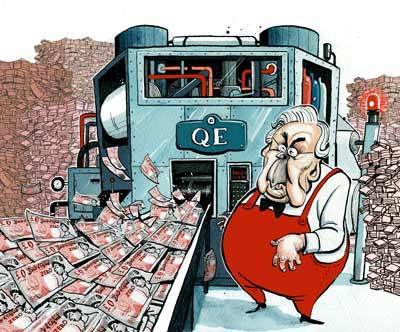It’s roughly seven months until George Osborne’s Autumn Statement, so no better time to consider which political issues will come to the boil ahead of it. Fuel costs, I’m sure, will be one if them; because they never really go away, and the 3p rise in fuel duty will have just been implemented in August. But I’d say the safest bet is the finances of the elderly. If the furore over the frozen income tax allowance for pensioners didn’t put that voting bloc at the forefront of Osborne’s mind, then the demographics behind UKIP’s poll jump will surely do the trick. He will be under severe pressure to act.
Actually, I’m not mentioning this at random, but because a group of MPs is today calling on Osborne to do just that — act. The Treasury Select Committee says that the Chancellor should use his Autumn Statement to ‘compensate’ those elderly folk and savers who are being ‘penalised’ by Quantitative Easing. CoffeeHousers will be familiar with the point, not least because it is one that The Spectator has been diligently making for months now. One of our leader columns in February highlighted that ‘[the] Quantitative Easing experiment has so far reduced the value of British pension funds by a staggering £119 billion, according to industry estimates’. And that’s on top of articles by Bill Jamieson and Fraser highlighting the side effects of Mervyn King’s money-printing operation.
The thing about today’s select committee report is that it’s the fiercest interrogation of QE that our political class has launched so far. And while there are, in truth, many worthy counterarguments against its prescriptions — from the IFS, among others — this is still a massively positive development on the whole. QE, on the scale it’s being undertaken, is by far the most radical economic policy in town today, and yet Osborne didn’t mention it once in his last Budget speech. Hopefully he won’t be able to skip over it, the good effects as well as the bad, in future.






Comments